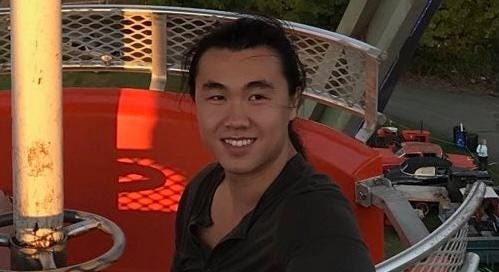This is a “bonus episode” of the Unsupervised Learning Podcast. Due to the time-sensitivity of the discussion, I am posting this simultaneously to Substack and Libsyn, so both free and paid subscribers are receiving this email.
Your regularly scheduled weekly subscribers-only podcast will still be released this Thursday.
Recently Yale Law School (YLS) student Trent Colbert wrote Why I Didn’t Apologize For That Yale Law School Email: We must end the culture of performative repentance for Persuasion. I was broadly familiar with the culture-war saga that Colbert was caught up in, having read a piece a few weeks ago in The Washington Post describing how a seemingly innocent and jocular email triggered accusations of racism at YLS (as well as Aaron Sibarium’s piece in The Washington Free Beacon). Colbert’s piece in Persuasion made me curious about him, and I reached out to talk about what he had seen, and the lessons that we as a society and individuals might take from it.
First, Colbert gives us his own perspective of what transpired at YLS to make him a “trending topic” on social media. Perhaps to the surprise of Millennials, the 23-year-old Zoomer seemed not entirely familiar with the well-known podcast Chapo Trap House. As a member of Gen X, I have to admit it's a little unnerving to hear Millennials viewed as geriatric elders. But Colbert grew up in a world of super-charged cultural change and perhaps perceives the passage of time differently than those of us who came into adulthood before smartphones. He contended that some of the offense others perceived might be a matter of cohort differences and even just his casual Zoomer manner. Even a few years' difference today might mean an entirely alternative landscape of memes and sensibilities, so a subtle and wry reference among his age-mates could strike an individual only a few years older as offensive, opaque and “tone-deaf.”
With that in mind, I was curious about his background, and where he got the strength to stand up to the YLS administrative bureaucracy. We explored his relationship to his Cherokee background, as well as growing up in a moderately conservative household where religion was important. Colbert takes the idea of right and wrong seriously, and he felt that his own conscience would not allow him to agree to an apology that was premised on lies. Importantly, he also had a supportive group of friends at YLS and a wider circle of backers in the community.
Eventually, we moved to broader social forces, and how his individual choices and decisions might impact others. By doing the right thing, rather than the easy thing, Colbert hopes to show that it is possible to defeat the kind of bureaucratic machine that was unleashed upon him and trigger a preference cascade that changes the culture on campus. And doing the right thing has not been entirely easy, as Colbert admits to being uncomfortable with realizing how others at YLS viewed him purely through a racial lens, as well as the fact that many prominent organizations accused him of being a racist.
Overall, perhaps the take-home lesson is that it doesn’t take an exceptional person to take on the system. Just someone who has a core set of principles and friends and family who support them when they might have to make decisions that lead to socially unpopular outcomes.















Share this post